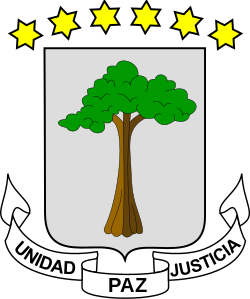Senate Senado Sénat | |
|---|---|
 | |
| Type | |
| Type | |
| History | |
| Founded | 2012 |
| Leadership | |
President | |
| Structure | |
| Seats | 55 |
 | |
Political groups | Government (55) |
| Elections | |
| Party-list proportional representation | |
Last election | 20 November 2022 |
| Meeting place | |
| Malabo [1] | |
| Website | |
| Official Website of the Senate | |
 |
|---|
The Senate is the upper house of the Parliament of Equatorial Guinea.
